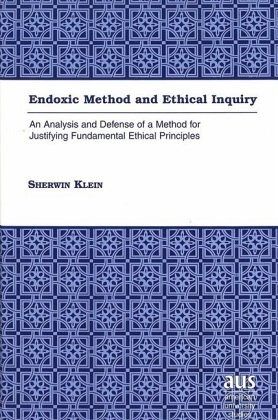Nicht lieferbar

Endoxic Method and Ethical Inquiry
An Analysis and Defense of a Method for Justifying Fundamental Ethical Principles
Versandkostenfrei!
Nicht lieferbar
Sherwin Klein develops and defends an endoxic, eliminative method for justifying fundamental principles in ethics. Regulative endoxa (premises that are universally or widely accepted on reflection) are the method's evaluative criteria. Klein shows that they are the necessary condition for the possibility of ethical knowledge; he also provides criteria for determining their adequacy and distinguishes them from conventional moral opinions. He discusses, in detail, the use of this method by Plato, Aristotle, Hume, and Kant; Mill's use of endoxa is also discussed. The method is defended against ch...
Sherwin Klein develops and defends an endoxic, eliminative method for justifying fundamental principles in ethics. Regulative endoxa (premises that are universally or widely accepted on reflection) are the method's evaluative criteria. Klein shows that they are the necessary condition for the possibility of ethical knowledge; he also provides criteria for determining their adequacy and distinguishes them from conventional moral opinions. He discusses, in detail, the use of this method by Plato, Aristotle, Hume, and Kant; Mill's use of endoxa is also discussed. The method is defended against challenges by MacIntyre, Nietzsche, and Kierkegaard.



